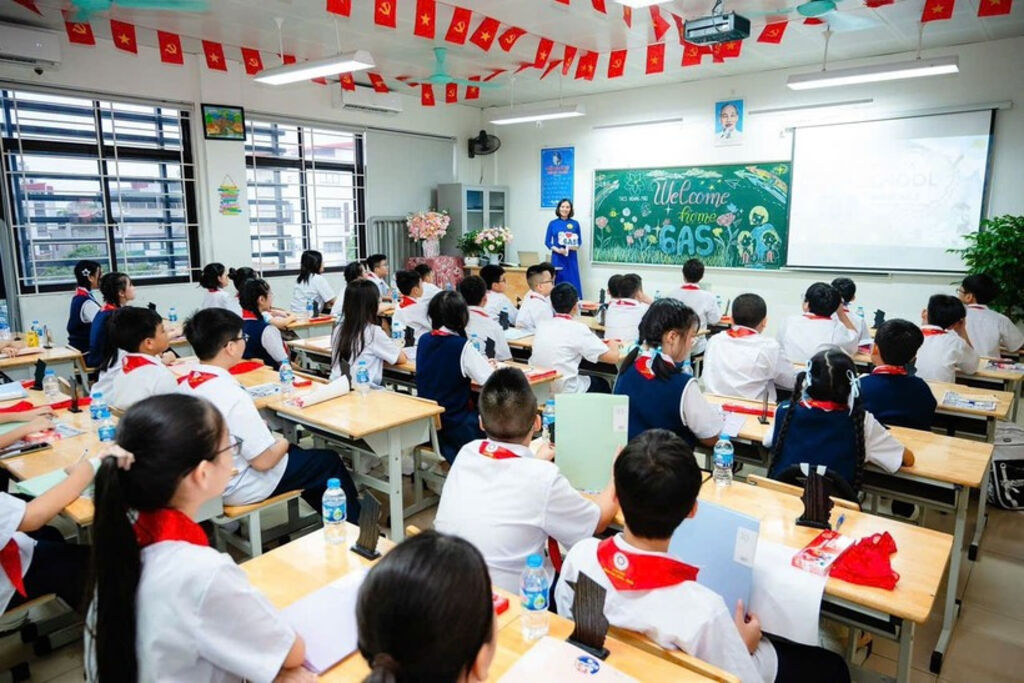 |
| Resolution 71 is expected to ensure equitable access to education__Photo: VNA |
Ahead of the 2025-26 academic year, the Politburo’s Resolution 71-NQ/TW on breakthrough development in education and training, signed by Party General Secretary To Lam on August 22, 2025, demonstrates a long-term strategic vision and strong political will, reaffirming the pivotal role and mission of education in determining the future of the nation.
Nguyen Thi Mai Hoa, Deputy Chairwoman of the National Assembly’s Committee on Culture and Social Affairs, said that Resolution 71 is a breakthrough resolution that introduces many new, innovative policies compared to previous education-related resolutions.
The novelty lies in its understanding which not only consistently affirms the view that “education and training are the top national policy,” but also emphasizes that the role and mission of education is to “determine the future of the country.”
This represents a major reform in the mindset about education, and a crucial point in renewing awareness, because the product of education is people, who are the human resources prepared for the future.
Therefore, the perception of the necessity to invest in education and training must also be renewed, in order to best prepare the country’s conditions to step into a new era, Hoa stated.
The breakthrough is a system of special and outstanding mechanisms and policies, especially the spirit of breakthrough in resources, motivation, and new space for the development of education and training. There is a shift in leadership and management thinking, moving strongly from administrative management to developmental facilitation, and ensuring full and comprehensive autonomy for higher education and vocational training institutions regardless of their level of financial autonomy. This is a crucial key that creates motivation, removes bottlenecks, and addresses shortcomings in mechanisms and policies related to education and training.
The official noted that the state budget for education and training is set to reach a minimum of 20 percent of the total state budget expenditure, with at least 5 percent allocated to investment expenditure and at least 3 percent dedicated to higher education.
Another breakthrough is the decisive leadership in the organization and implementation, she said, adding that Resolution 71 not only sets out policies but also mandates that implementation must begin in 2026, with some measures to be carried out starting from the 2025-26 school year.
This is a call to action, expected to drive strong momentum across the entire political system in supporting education and training, Hoa remarked.
The official went on to say that Resolution 71 advocates ensuring the supply of a unified national set of textbooks, aiming to provide free textbooks to all students by 2030.
She believed this policy reflects the state's responsibility towards the general education and aligns with the goals of universalizing early childhood education for children aged 3 to 5 and compulsory education at the secondary level by 2030, as well as completing universal general education by 2035.
With the implementation of Resolution 71, the quality of general education will improve by benefiting from several breakthrough policies aimed at expanding the target groups for universal and compulsory education, as well as increasing investments in modern facilities, teaching equipment, technology infrastructure, and the development of a smart education platform meeting national standards, as well as school nutrition programs.
Especially, models such as networks of boarding schools in ethnic minority areas, disadvantaged regions, and border areas, along with specialized education at the high school level will contribute to quickly realizing the goal of equitable access to education, which will reflect the humanitarian values of the regime and align with the aspiration for a prosperous and strong nation by 2045, added Hoa.- (VNA/VLLF)









